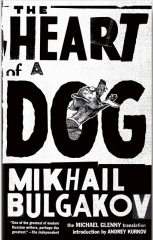September 27, 2013
Melville House celebrates Banned Books Week
by Claire Kelley
We’ve been reading banned books all week long at Melville House! You can read them too. All of the books below are available for 20% off the list price on our website.
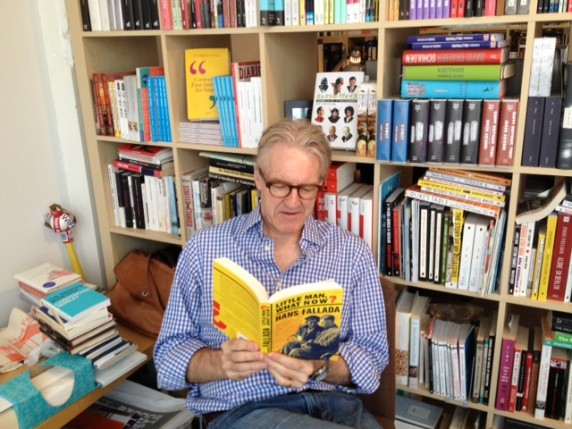
Melville House co-publisher Dennis Johnson reading Hans Fallada’s Little Man, What Now? — the book that was the beginning of the end for Hans Fallada.
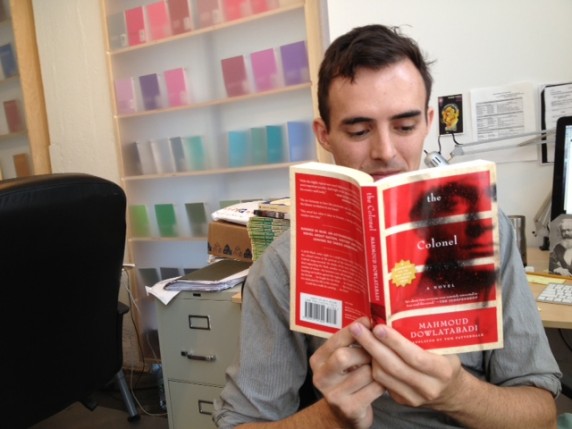
Melville House marketing manager Dustin Kurtz reading Mahmoud Dowlatabadi’s The Colonel— still unpublished in the author’s native Iran.
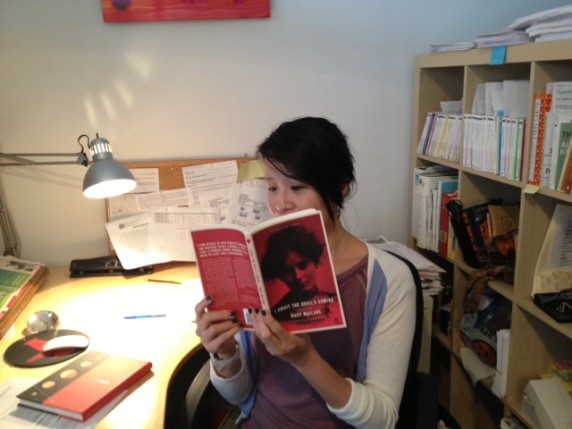
Wah-Ming Chang, Melville House’s managing editor, reading Mary MacLane’s I Await the Devil’s Coming—which was promptly banned in the author’s hometown library, prompting her to leave Butte, Montana.
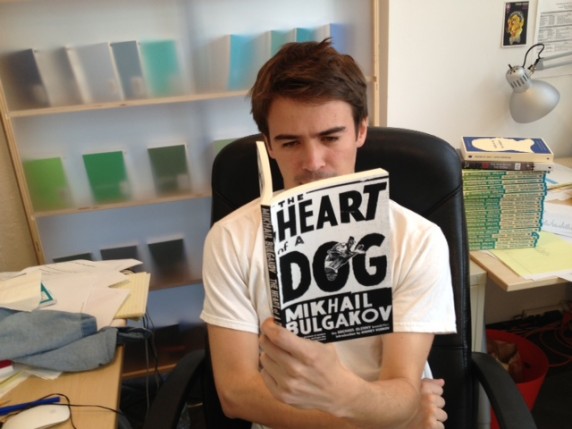
Melville House’s digital media guru Alex Shepherd reads Russian author Mikhail Bulgakov’s Heart of a Dog, which was available only in the samizdat until forty years after the author’s death.
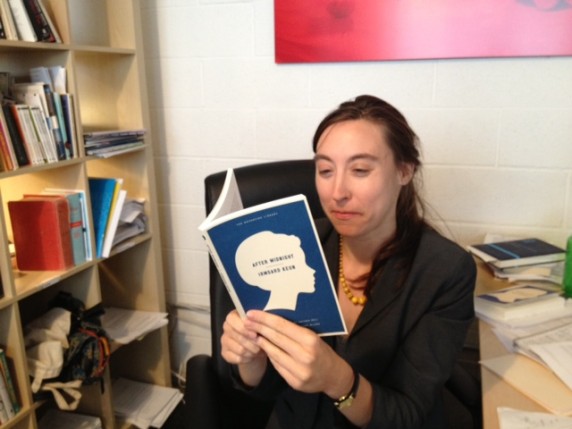
Melville House editor Sal Robinson reads Irmgard Keun’s After Midnight—which was written while on the run from the Gestapo, who had Keun on their death list.
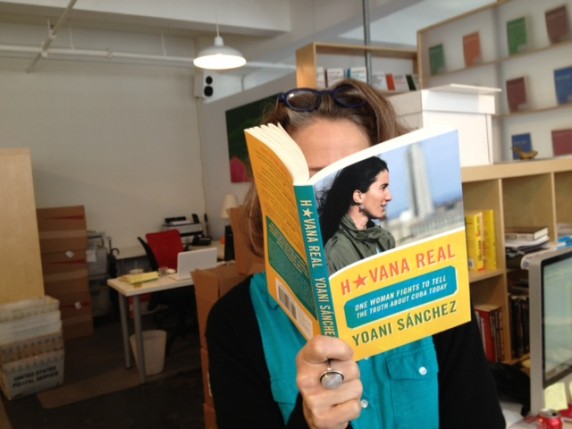
Melville House co-publisher Valerie Merians reading Havana Real by Yoani Sanchez, still unavailable in the author’s native Cuba.
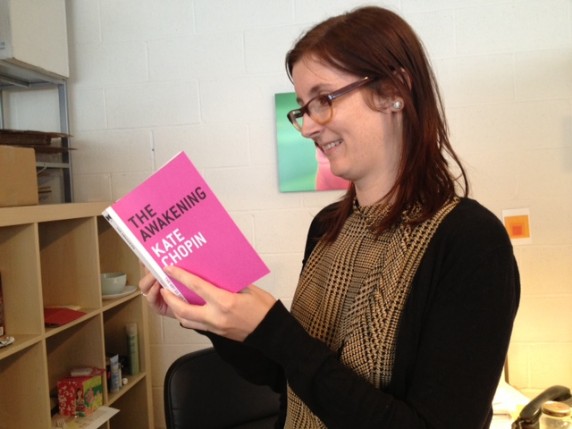
Melville House editor Kirsten Reach with Kate Chopin’s The Awakening— banned in numerous places when first published, and still challenged regularly.
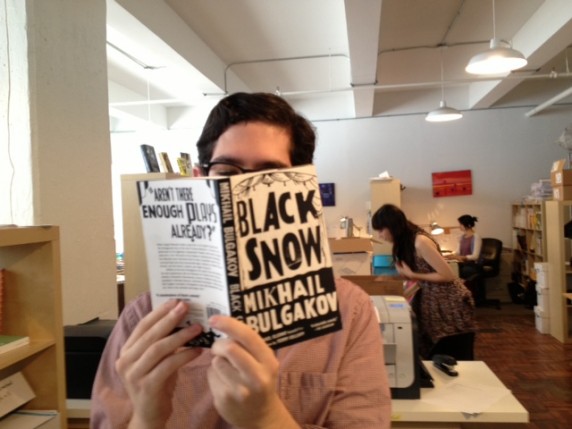
Intern Michael Elmets reading Mikhail Bulgakov’s Black Snow which, like the author’s other Stalin-era books, became unavailable until long after the author’s death.
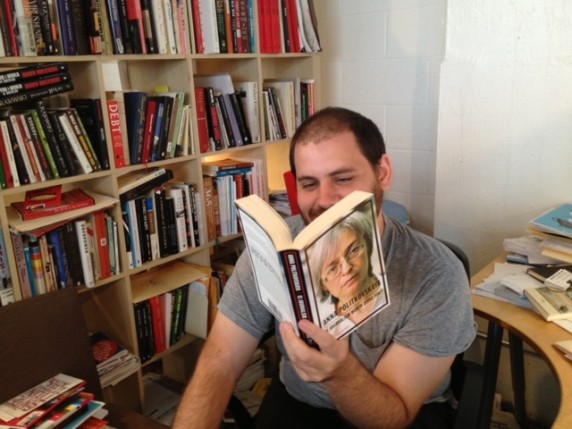
Melville House associate publisher Kelly Burdick reading the last book by the great Russian journalist Anna Politkovskaya, Is Journalism Worth Dying For? The author was not only banned in Russia, but murdered while writing this book.
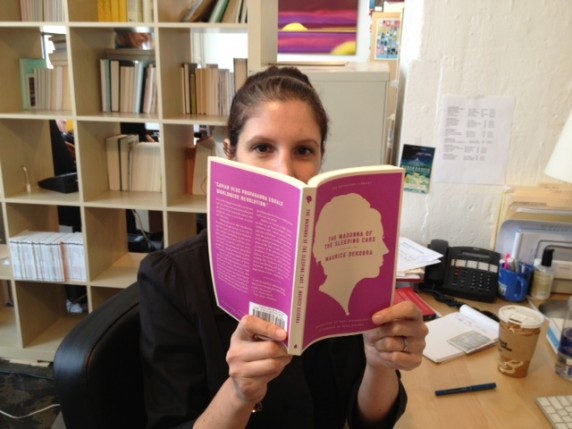
Julia Fleischaker, director of publicity for Melville House, reading Maurice Dekobra’s The Madonna of the Sleeping Cars, the massive 1927 bestseller that earned the honor of being banned in Boston.
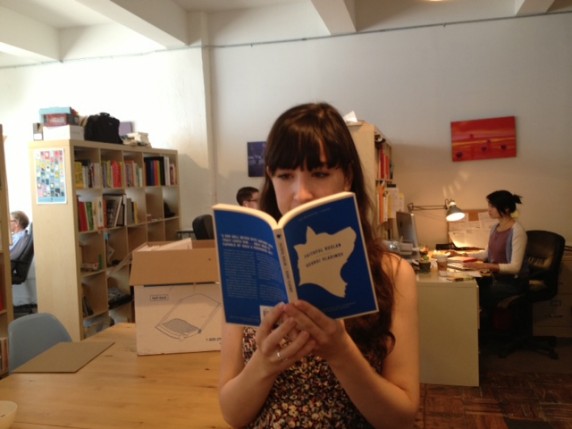
Intern Amy Conchie reading Faithful Ruslan, by Georgi Vladimov, which was published in translation decades before it appeared in the author’s native Russia.
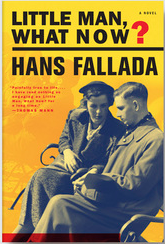
LITTLE MAN, WHAT NOW?
by Hans Fallada
Translated by Susan Bennett
Although it’s a slyly critical look at life under the rise of fascism, and although it was a huge international hit (it was even a Book of the Month Club selection in the US), the Nazis didn’t notice this 1932 title until it was made into a Hollywood movie … by Jewish producers. They banned Fallada from selling foreign rights and put him on the “undesirable authors” blacklist. It was the beginning of a long nightmare for Fallada.
THE HEART OF A DOG
by Mikhail Bulgakov
Translated by Michael Glenny
This allegory of the Communist revolution features a hairy, lecherous, vulgar, vodka-swilling comrade mongrel who threatens to expose his scientist creator as a counterrevolutionary. The book was initially prohibited in the Soviet Union, but was circulated in samizdat until it was officially released in 1987.
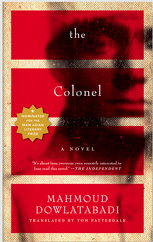
THE COLONEL
by Mahmoud Dowlatabdai
![]()
The Colonel is banned in Dowlatabadi’s native Iran, where the office of censorship has prohibited its publication. This is Dowlatabadi’s latest novel, and it is now published in German and English. Another novel by Dowlatabadi, Missing Soluch, was the first Iranian novel to be written in the everyday language of the people.
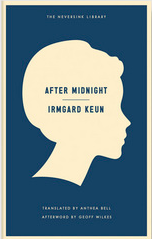
AFTER MIDNIGHT
by Irmgard Keun
![]()
The Nazis banned Keun’s first two bestselling novels, and so she had to write After Midnight in exile. In order to escape, she faked her own suicide, and then returned under a false name. This book captures the unbearable tension, contradictions, and hysteria of pre-war Germany.
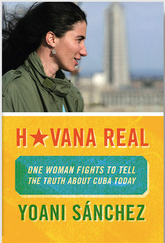
This book is a collection of sketches of daily life in Cuba that Yoani Sánchez has been posting on her website, Generation Y, since 2007. Since the start of her blog, the dictatorship of Fidel and Raúl Castro has tried to silence her, and Sánchez has had to send the posts via email to friends since the blog was blocked in Cuba.
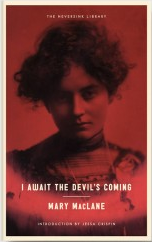
I AWAIT THE DEVIL’S COMING
by Mary MacLane
![]()
In 1902, this book (originally called The Story of Mary MacLane) written by a privileged nineteen-year-old girl in Butte, Montana became an instant, nation-wide best seller for its perceived indecency. The Butte Public Library banned the book, but the 80,000 who bought it during its first month were delighted by its breathless defiance: “I should prefer some life that is not virtuous. I shall never make use of the marriage ceremony. I hereby register a vow, Devil, to that effect … My soul goes blindly seeking, seeking, seeking … every nerve and fiber in my young woman’s body.”
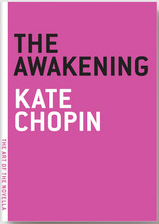
On July 6, 1902, The New York Times reported that the Evanston, Illinois public library had removed The Awakening from its shelves with other books that the library board found objectionable. According to the American Library Association, the novel was “retained on the Northwestern Suburban High School District 214 reading list in Arlington Heights, IL, along with eight other challenged titles in 2006.”
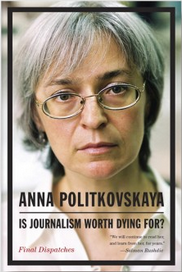
IS JOURNALISM WORTH DYING FOR?
by Anna Poilitkovskaya
![]()
Anna Politkovskaya’s Putin’s Russia, published in the winter of 2004, was the first book to receive a Writers in Translation award. Banned in Russia, the book is a critical analysis of Putin’s presidency and the corruption and destruction of its civil society that has occurred under his leadership. Known to many as “Russia’s lost moral conscience,” Anna Politkovskaya was shot and murdered in Moscow in October 2006. Few doubt that her killing was an attempt to silence her reporting. In addition to essays and pieces of memoir, Is Journalism Worth Dying For? contains the first translation of a series of investigative reports that Politkovskaya was working on when she was murdered—pieces many believe led to her assassination.
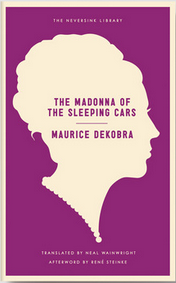
THE MADONNA OF THE SLEEPING CARS
by Maurice Dekobra
![]()
On May 28, 1927, The Evening Standard reported that The Madonna of the Sleeping Cars had been banned in Boston. The newspaper speculates that the Boston cop who found it indecent and shocking probably “did not put it down until he found out how the amusingly desperate Lady Diana Wynham ended her adventures.”
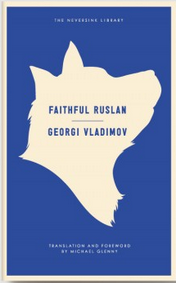
FAITHFUL RUSLAN
by Georgi Vladimov
![]()
Written in the 1960s, this novella circulated in samizdat for more than a decade, often attributed to Solzhenitsyn, before its publication in the West led to Vladimov’s harassment and exile. According to the “Reference Guide to Russian Literature” by Neil Cornwell, Faithful Ruslan was banned from publication in the USSR for three decades. The first editions of it appeared in the west, and it was only in 1989 that this work was first published in Russia, producing an exceptionally strong reaction from the reading public, critics, and press alike.
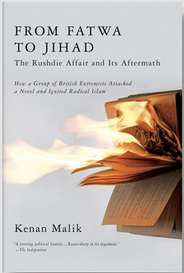
FROM FATWA TO JIHAD
by Kenan Malik
![]()
Although this book itself was not banned, it tells the story of one of the most famous and dramatic cases of a banned book–Salman Rushdie’s The Satanic Verses. In Islamic communities all over the world, the novel became instantly controversial because of references in the book that Muslims considered blasphemous. Iran’s Ayatollah Khomeini called for Rushdie’s assassination, and for the killing of anyone involved with the book’s publication. In From Fatwa to Jihad, Kenan Malik examines the questions raised by the Rushdie affair–Islam’s relationship to the West, the meaning of multiculturalism, and the limits of tolerance in a liberal society.
Claire Kelley is the Director of Library and Academic Marketing at Melville House.
